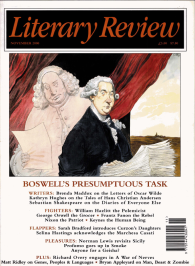Martyn Bedford
Still Has Plenty to Say
Bettany's Book
By Thomas Keneally
Sceptre 603pp £16.99
Thomas Keneally could be forgiven for taking it easy. In his mid-sixties, with twenty-plus novels, six works of non-fiction, a children's book, a Booker prize and three shortlistings to his credit, he has gathered more than enough laurels upon which to rest. To have written the incomparable Schindler's Ark would in itself be cause for many an author to retire, well satisfied. So, I confess, I came to his new novel seeking signs of complacency, of a once great writer drawing on depleted reserves of ideas, passion and aspiration. What I found was a thumping big book teeming with energy. Not only is Keneally, still a supreme storyteller, but his range seems to be expanding rather than contracting. The characters, settings and plot lines in Bettany's Book could fill three novels. with leftovers for a short-story collection. Even more impressively, the scale of his ambition - the sense of history and of social purpose that typifies much of his output -remains undiminished.
Keneally stretches his latest fictional canvas across two continents and two centuries. The novel opens in his native Australia, where two young women - orphaned sisters Dimp and Prim Bettany - are forging divergent paths for themselves. The charismatic Dimp moves among Sydney's elite after an acclaimed debut

Sign Up to our newsletter
Receive free articles, highlights from the archive, news, details of prizes, and much more.@Lit_Review
Follow Literary Review on Twitter
Twitter Feed
The latest volume of T S Eliot’s letters, covering 1942–44, reveals a constant stream of correspondence. By contrast, his poetic output was negligible.
Robert Crawford ponders if Eliot the poet was beginning to be left behind.
Robert Crawford - Advice to Poets
Robert Crawford: Advice to Poets - The Letters of T S Eliot, Volume 10: 1942–1944 by Valerie Eliot & John Haffenden (edd)
literaryreview.co.uk
What a treat to see CLODIA @Lit_Review this holiday!
"[Boin] has succeeded in embedding Clodia in a much less hostile environment than the one in which she found herself in Ciceronian Rome. She emerges as intelligent, lively, decisive and strong-willed.”
Daisy Dunn - O, Lesbia!
Daisy Dunn: O, Lesbia! - Clodia of Rome: Champion of the Republic by Douglas Boin
literaryreview.co.uk
‘A fascinating mixture of travelogue, micro-history and personal reflection.’
Read the review of @Civil_War_Spain’s Travels Through the Spanish Civil War in @Lit_Review👇
John Foot - Grave Matters
John Foot: Grave Matters - Travels Through the Spanish Civil War by Nick Lloyd; El Generalísimo: Franco – Power...
literaryreview.co.uk